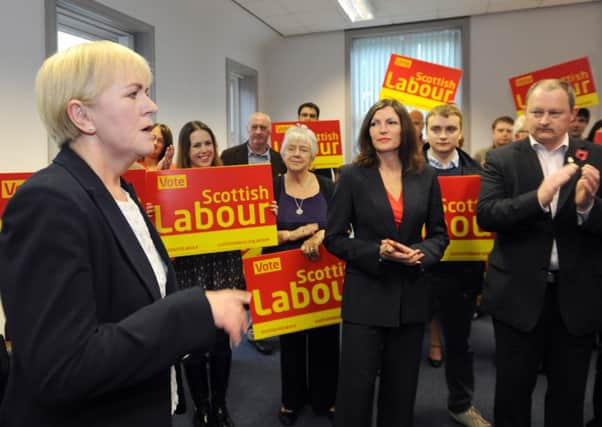Leaders: Johann Lamont needs to show authority


Donald Dewar, Henry McLeish, Jack McConnell, Wendy Alexander and Iain Gray were – technically – leaders of the Labour MSPs in the Scottish Parliament. But Ms Lamont was elected under a new system that gave her authority over the whole party north of the Border.
This should have been a tremendous opportunity to stamp her authority on a fractious Scottish Labour, bring about a new sense of unity and get things done. And, indeed, she got off to a good start, deploying a wry humour against Alex Salmond at First Minister’s Questions, and raising bold and legitimate questions about the affordability and fairness of the SNP government’s universal free services and tax breaks.
Advertisement
Hide AdAdvertisement
Hide AdMs Lamont is, however, squandering that good start. There has been little follow-up from her office on universalism, and no formulation of a new Scottish Labour policy on the issue. This has allowed her opponents to characterise her as an opponent of everything from free care for the elderly to free bus passes for the over-60s. The voters, meanwhile, are none the wiser.
Last year, when the Grangemouth dispute threatened an industrial cataclysm, and Mr Salmond and Westminster ministers were trying to knock heads together to find a solution, the Scottish Labour leader was notable by her absence and her apparent unwillingness to get involved.
But it is perhaps on the issue of Labour’s troubles in Falkirk that Ms Lamont’s reputation has taken the biggest knock. Throughout the saga, UK labour leader Ed Miliband has taken the lead in the party’s response, with Ms Lamont – once again – seemingly seeking to avoid being drawn into the subject.
Ms Lamont’s silence is in danger of being misinterpreted as a sign that she disapproves of Mr Miliband’s response to the saga – particularly his challenge to the power of the trade unions within the Labour Party more widely, which will be debated at a special UK party conference next month.
In this, she gives the impression of a bystander with little interest in the process or the outcome, rather than as a national party leader.
This is all the more curious – and, to some eyes, questionable – when one considers how sensitive the issue is for Ms Lamont, who won her leadership election on the back of union support.
This week, another question mark about Ms Lamont’s authority has been raised, in the form of senior MP Ian Davidson and senior MSP Ken Mackintosh expressing doubts about draft Labour proposals to devolve more tax powers to Holyrood.
These were both challenges to their leader’s authority, but they went unanswered. The issue of more powers for Holyrood is just the latest on which Ms Lamont needs to assert her authority as Scottish party leader.
It’s a battle for Bannockburn
Advertisement
Hide AdAdvertisement
Hide AdTHIS year’s commemoration of the 700th anniversary of the Battle of Bannockburn has – like the English cavalry on that gory day in 1314 – found itself struggling in boggy ground.
As we report today, what was planned as a three-day spectacular that aimed to attract 45,000 people has been scaled back to two days. The expected number of visitors has also been reviewed downwards, to around 20,000.
It all seems a bit of a mess. This is odd, and also a shame. The 700th anniversary of one of the milestone events in Scottish history, widely credited as the moment that cemented Scotland’s survival as a nation, was a fantastic opportunity to connect 21st century Scots with their country’s historical antecedents.
And yet ticket sales do not appear to have been going well, and the organisers have been thrown by the announcement of plans for the official Armed Forces Day event on the same weekend, centred on nearby Stirling.
Did organisers over-estimate the public appetite for the Bannockburn event, which involves large-scale re-enactments of the battle? Or, in a tough economic climate, are the adult ticket prices – between £22.50 and £82.50 – asking too much of cash-strapped Scots, especially when families could watch massed pipes and drums on the streets of Stirling on the same weekend free?
The question also has to be asked if the controversy over the role the anniversary will play in the run-up to the independence referendum – with some critics detecting a political motive – has had a negative effect on people’s perceptions.
Whatever the reason, this is, as we say, a shame. This landmark anniversary needs a fitting commemoration.